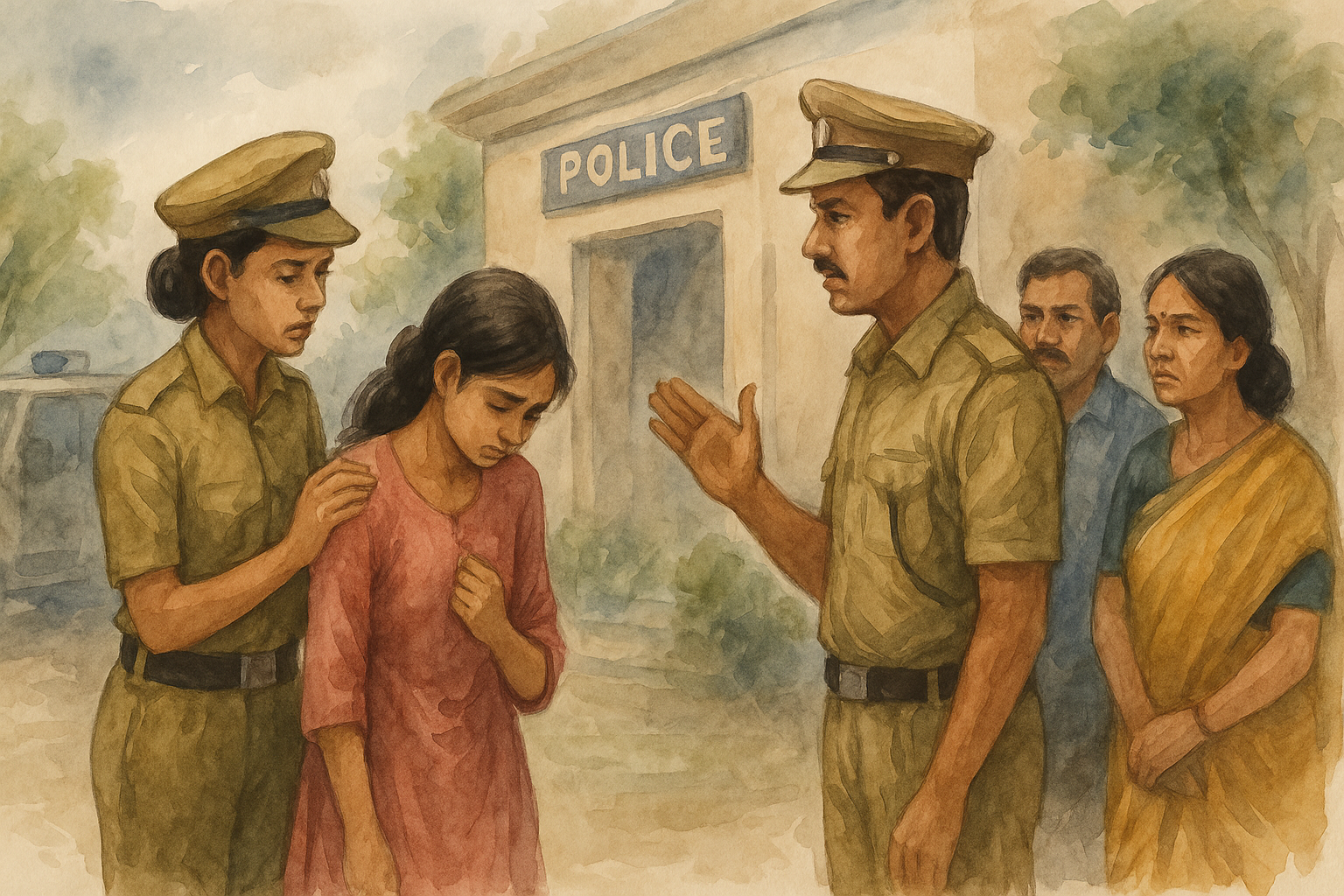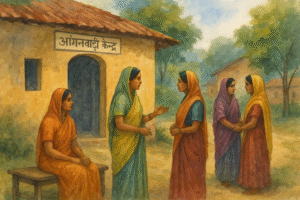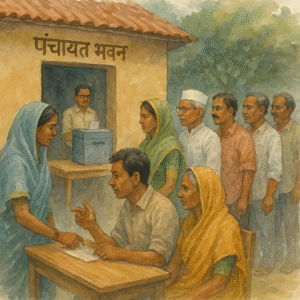Simplified Explanation of the Judgment
The Patna High Court dealt with a sensitive habeas corpus petition involving the alleged illegal detention of a 16-year-old girl. The petitioner (her father) claimed that his daughter had been taken away and was living with another man against her will. He sought directions for her immediate production and release.
Background of the Case
- The father lodged an FIR (Patliputra P.S. Case No. 273/2020) under Section 366A IPC (procuration of a minor girl).
- Despite the FIR, the girl was not traced for several months, prompting the petitioner to move the High Court.
- During the proceedings, the police eventually located the girl along with the accused in Darbhanga. She was taken into custody and her statement was recorded under Section 164 CrPC.
The girl disclosed that she had left her home due to ill-treatment by her parents, and had voluntarily gone with the accused. She also expressed fear that her parents might harm her if she returned home. She claimed she had even married the accused in a temple.
She was medically examined, but instead of being produced before the Child Welfare Committee (CWC) as required under the Juvenile Justice (JJ) Act, 2015, she was kept in police custody and later handed back to her parents. Soon after, she again eloped with the accused.
Court’s Observations
The Court expressed strong concern at the manner in which the case was handled:
- Violation of Juvenile Justice Act:
- The girl was a “child in need of care and protection” under Section 2(14) of the JJ Act.
- She should have been presented before the Child Welfare Committee within 24 hours.
- Instead, she was kept in police custody for two nights, which the Court found highly improper.
- Non-compliance with POCSO Act safeguards:
- The girl’s statement under Section 164 CrPC was not recorded in a child-friendly manner.
- Her medical examination was delayed, contrary to the requirements of Section 27 of POCSO Act.
- The law prohibits detaining children overnight in police stations, but this safeguard was ignored.
- Systemic Gaps in Police and Judicial Training:
- The Court noted lack of awareness among police and magistrates regarding mandatory child protection laws.
- It recalled earlier Supreme Court rulings (Independent Thought v. Union of India; Sampurna Behura v. Union of India) highlighting that all sexual activity with a girl under 18 amounts to rape, even if married.
Court’s Directions
The High Court issued broad directives to strengthen child protection in Bihar:
- State Government:
- Constitute a State Child Protection Society and District Child Protection Units as required under Section 106 JJ Act.
- Police:
- Every police station must designate a trained Child Welfare Police Officer.
- Each district must establish a Special Juvenile Police Unit with police and social workers (at least one woman).
- All such officers must undergo special training to handle child-related cases.
- Judiciary:
- The Bihar Judicial Academy must conduct regular training for judicial officers on JJ and POCSO laws.
- Sensitization:
- DGP Bihar was directed to ensure all police personnel investigating crimes against children receive continuous training on child rights and safeguards.
Court’s Final Decision
- The habeas corpus petition was disposed of with directions for systemic reforms.
- The Court emphasized that its observations were only prima facie and would not prejudice the trial.
Significance or Implication of the Judgment
- For Parents and Families:
- Even if a child leaves home due to domestic issues, her protection must be ensured under JJ and POCSO Acts.
- Parents cannot bypass statutory safeguards by directly taking custody from police.
- For Police Authorities:
- They must strictly follow child protection laws—no child can be detained in a police station overnight.
- Child Welfare Committees are the rightful authority for decisions about a child’s custody and welfare.
- For Judiciary and Government:
- Highlights urgent need for training and awareness of child rights laws.
- Calls for implementation of pending reforms from earlier Supreme Court directives on police and juvenile justice system.
This case demonstrates the Court’s role in ensuring not only justice in individual cases but also systemic protection of children’s rights.
Legal Issue(s) Decided and the Court’s Decision with Reasoning
- Whether the minor girl was a “child in need of care and protection”?
✔ Yes. Under Section 2(14) JJ Act, she fell within the definition. - Was it legal to keep her in police custody and hand her directly to parents?
❌ No. She should have been produced before the Child Welfare Committee within 24 hours. - Were the safeguards of POCSO and JJ Acts followed?
❌ No. The Court found multiple violations including delayed medical exam and improper statement recording. - What systemic directions were necessary?
✔ State must establish Child Protection Units, train police/judges, and ensure child-friendly investigation and rehabilitation procedures.
Judgments Relied Upon or Cited by Court
- Independent Thought v. Union of India, (2017) 10 SCC 800
- Prakash Singh v. Union of India, (2006) 8 SCC 1
- Sampurna Behura v. Union of India, (2018) 4 SCC 433
Case Title
Gopal Gupta v. The State of Bihar & Ors.
Case Number
Criminal Writ Jurisdiction Case No. 394 of 2020
(Arising out of Patliputra P.S. Case No. 273 of 2020)
Citation(s)
2021(2) PLJR 207
Coram and Names of Judges
- Hon’ble the Chief Justice Sanjay Karol
- Hon’ble Mr. Justice Rajeev Ranjan Prasad
Names of Advocates and who they appeared for
- For the Petitioner: Mr. Vikash Kumar Pankaj, Advocate
- Amicus Curiae: Mr. Ashutosh Singh, Advocate
- For the State: Mr. P.N. Sharma, AC to AG
Link to Judgment
MTYjMzk0IzIwMjAjMSNO-6LquAHEuXcI=
If you found this explanation helpful and wish to stay informed about how legal developments may affect your rights in Bihar, you may consider following Samvida Law Associates for more updates.








